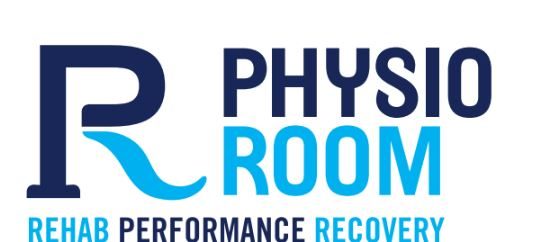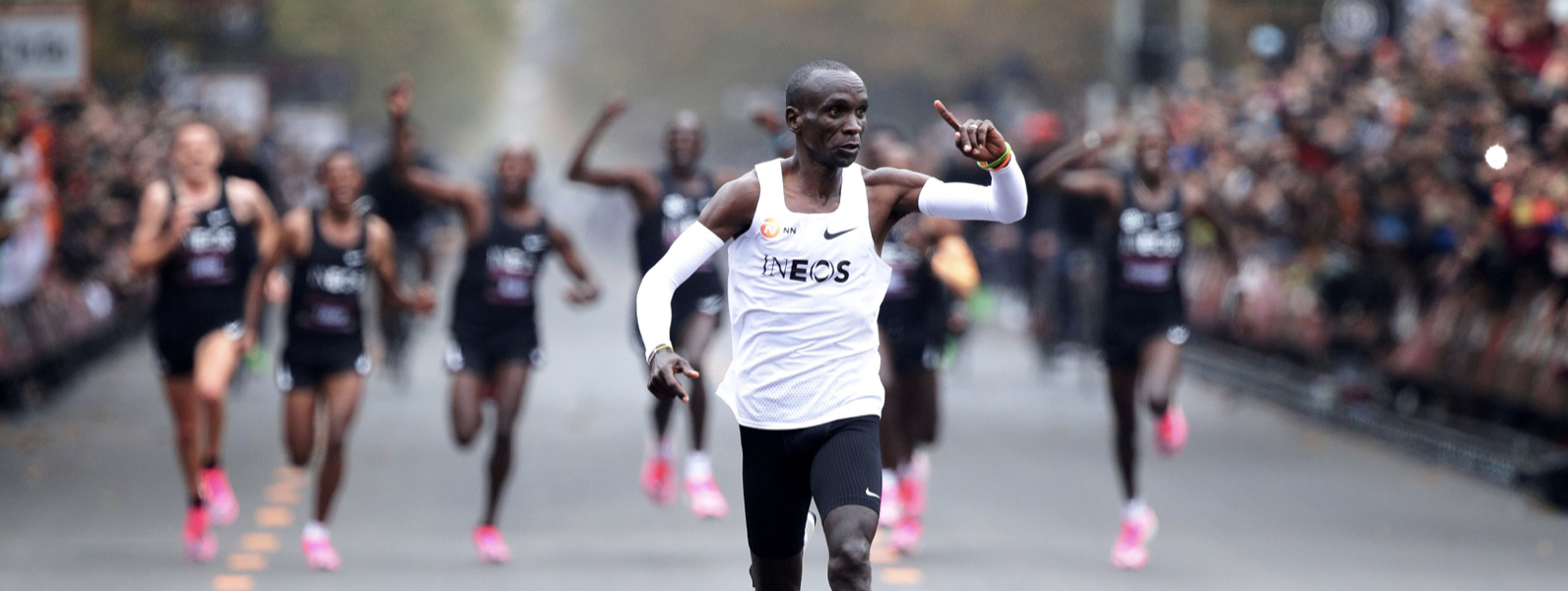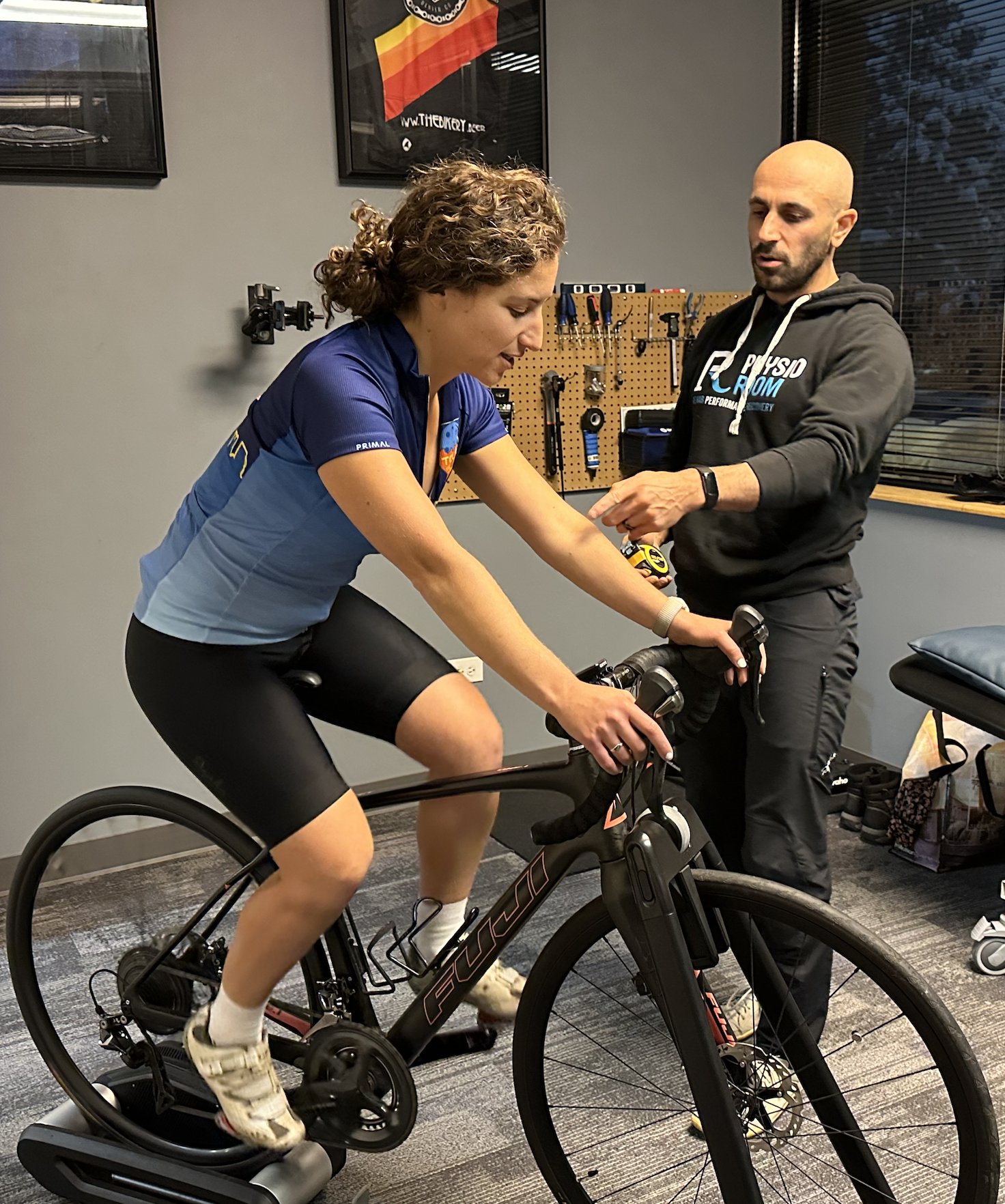Smiles for extra and faster miles: The Fatigue Fighter
“When you smile and you’re happy, you can trigger the mind to not feel your legs.”
– Eliud Kipchoge
The gist: During a hard effort, one of the most influential muscles athletes can utilize is the zygomaticus major – the primary muscle when smiling. Smiling reduces the stress response. Decreased mental and physical stress contribute to decreased perception of effort. And, “perceived exertion is the single best indicator of the degree of physical strain”, as noted Alex Hutchenson’s 2018 book Endure: Mind, Body, and the Curiously Elastic Limits of Human Performance.
Smile or frown, you decide:
“Perceived exertion integrates information from muscles, joints, the cardiovascular and respiratory system, and the central nervous system.” A 2018 study from Physiology of Sport and Exercise, highlighted how perceived effort in runners was higher when frowning in comparison to smiling and relaxing. Smiling also improved running economy (not to be confused with running efficiency) when compared to frowning, likely aided by a “reduction in muscular tension”.
Not all study participants improved when smiling. A perma frown (PF) worked better for some. This was evidenced by outliers in the study that performed better when frowning. If you naturally have PF, the cost-benefit to turn that frown upside down might not be in your favor during exercise.
As in life, be sincere:
The sincerity of any smile typically wanes after a short while. A false smile activates fewer facial muscles and is correlated with a lower degree of benefit.
“The key is likely to grin sincerely for 10 to 30-second bouts during prolonged efforts or near a race’s end.”
It all makes sense:
These findings are rather predictable. Positive self-talk, self-affirmation, music (listening or singing to yourself) are all well-known strategies to alter your sense of effort. The overlap and interrelation of the affective state on physical performance is highlighted here as well. While these tactics can favorably alter our mind set, that is not just a proxy for what’s going on in the rest of the body. It’s the final arbiter.
Sure, breathing out of your eyeballs during a sprint and attempting to smile might not be the best strategy. But if you are in the hurt locker, say, half way into a multi-hour event, take a few seconds to smile, relax, be present in the moment, and focus on what’s under your control. It’s also a good time to embrace the deeper reasons for your current endeavor.
References
- Hutchinson, Alex. Endure: Mind, Body, and the Curiously Elastic Limits of Human Performance. Custom House. 2018.
- Noel E. Brick, Megan J. McElhinney, Richard S. Metcalfe.The effects of facial expression and relaxation cues on movement economy, physiological, and perceptual responses during running.Psychology of Sport and Exercise. Volume 34, 2018.
- Marcora, Samuele. Counterpoint: Afferent feedback from fatigued locomotor muscles is not an important determinant of endurance exercise performance. Journal of Applied Physiology. Volume 108, 2010.





No responses yet